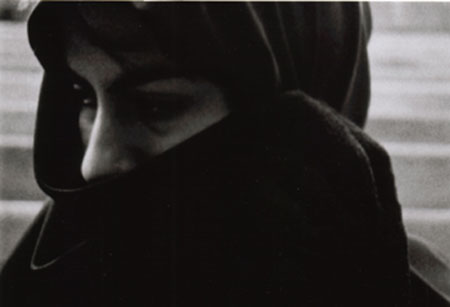
The Israeli version of Wife Swap has done a lot, exchanging meat-eater for vegan, religious for secular, and so on. Recently, they decided to swap a Muslim for Jew. I will reproduce the article from the Times Online here; it's just too entertaining to paraphrase!
Amal Ahmed Abdullah, a 28-year-old Muslim from an Arab village near Jerusalem, tearfully packed her bags and quit the reality television show early. She bade her Jewish "husband" a terse farewell, unable to bear the increasingly rancorous rows.
By contrast Ayelet Movsowitz, 39, felt at home and went out of her way to fit in with her Muslim "spouse", a world away from her farming community home in northern Israel near the Sea of Galilee.
Kuperman, an Israeli production company, bought rights to the hit Channel 4 series Wife Swap. But after a successful first run that swapped Jewish families it decided go one step farther and take the show to the frontier of the country's eternal conflict.
Arab Israelis, who make up 20 per cent of the population, and Jewish Israelis lead largely separate lives, and they rarely interact socially. The cultural gulf is enormous, with Arab Israelis discriminated against, identified with Palestinians from the West Bank and Gaza.
The question Wife Swap posed was simple: can Arabs and Israelis get along on a personal level, even if they seem destined to quarrel when politics enters the equation? The answer was mixed.
Mrs Movsowitz, a part-time secretary and mother of three, found herself immediately welcomed into the extended Ahmed Abdullah family, which is liberal and easy-going by Arab standards.
Like her "husband", the gentle 36-year-old construction worker Karim Ahmed Abdullah, she made the effort to adapt, although she balked initially when she discovered that her surprise destination was the Arab town Ein Nakuba. She hoped aloud that it was not hostile.
But the pair developed a bond and, as the Wife Swap format demands, Mrs Movsowitz lived by the family's traditions for the first four days and imposed her own rules for the second four. She even tried out her stumbling Arabic for the Ahmed Abdullah children and imposed some order, insisting that the children return home early after school to do their homework rather than hanging around the family restaurant, where their mother works 12-hour days.
Even when Mrs Movsowitz belatedly recalled just before Friday sunset and the start of the Jewish Sabbath that she had no wine to celebrate the religious ritual, Mr Ahmed Abdullah was unflappable. He rushed to a Jewish family nearby and the curious Muslim family subsequently looked on as she lit Sabbath candles.
That image of harmony was in stark contrast to that of Mrs Ahmed Abdullah and her "spouse", Sean, 41, who started off on the wrong foot by revealing that he was not comfortable with her being alone with his three children.
Despite her own long working hours, unusual for Arab wives, who almost always stay at home, Mrs Ahmed Abdullah was horrified by Mr Movsowitz's workaholic tendencies. His long days as a sales and marketing manager left little time for the children, a pattern that Mrs Ahmed Abdullah demanded he break, but to no avail.
Sparks flew and tears flowed as one spat ran into anotherquarreled quarrelled incessantly, apparently unable to see each other as anything but a stereotype. She wanted to watch the news on al-Jazeera, but he decreed CNN. In the kitchen she forgot Jewish dietary laws and mixed dairy with meat, to his consternation.
For one of the children's birthdays she had the cake decorated with Arabic script. She also played Arabic music. "What's this music?" asked an exasperated Sean, standing in a room full of Jewish children and their parents. "You'll just chase everyone away."
The quarrel grew more heated. Mrs Ahmed Abdullah could not stand the tension and packed her bags, leaving with a tearful good-bye for the children.
Roy Oz, the executive editor of the show, said that the friction was not caused by their religious differences.
"Their differences were not cultural but personal," he said. "The cultural and religious differences only served as the point of conflict for these two. The reason they couldn't get on was simply because they're such different people."
What do you think? Was it really just a clash of personality, or years of cultural training on both sides? Perhaps the producers prodded such disagreement for rating's sake, as they do here in America, or was the quarrelling pair the norm? Perhaps the "couple" who got along well was the exception that the show's producers were looking for...
No comments:
Post a Comment